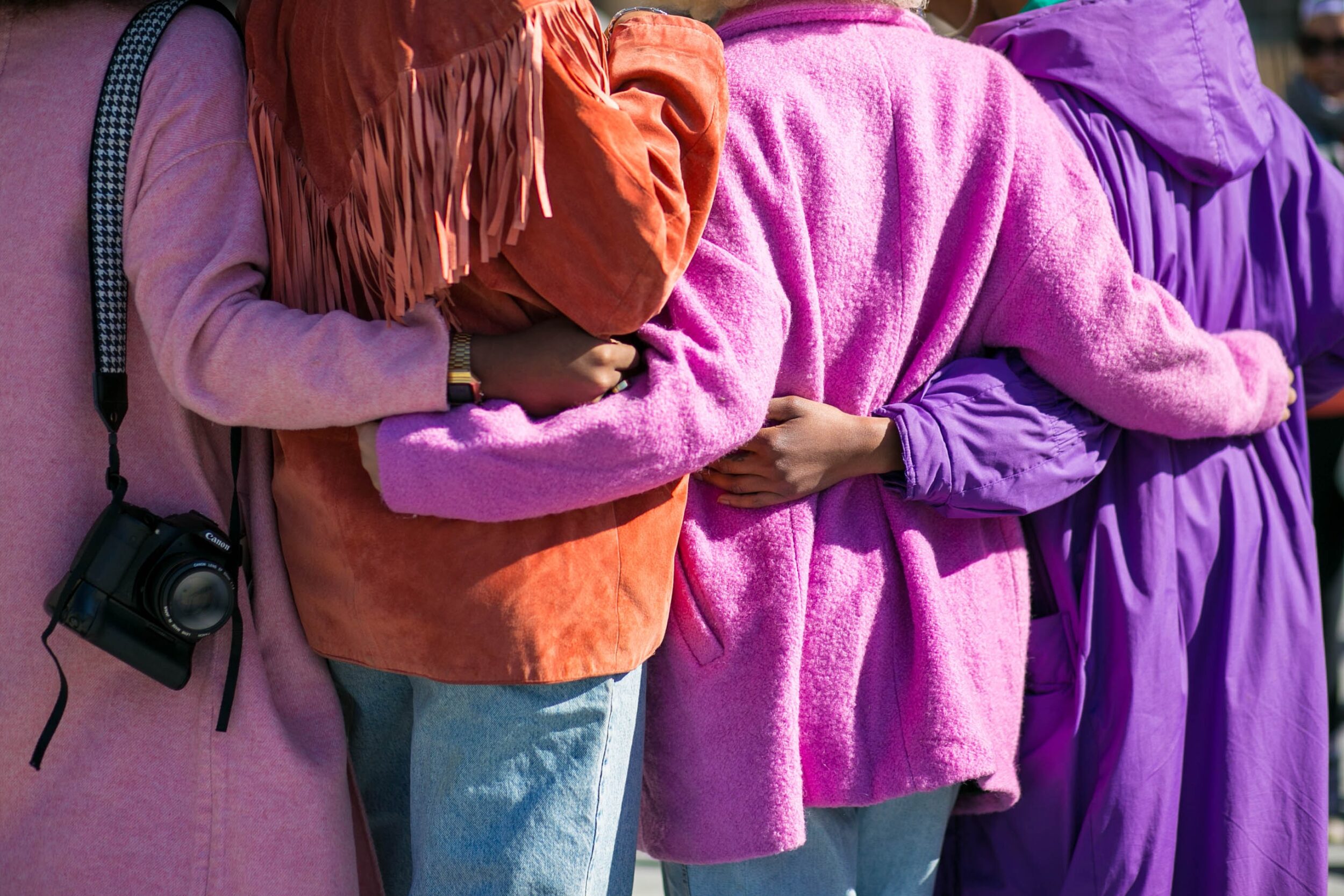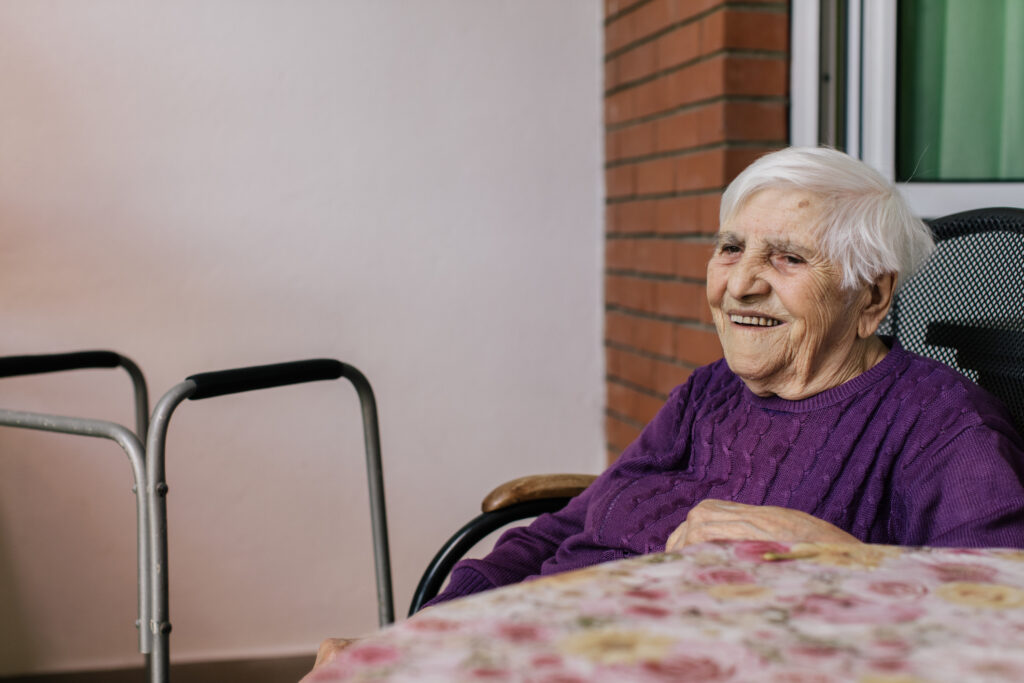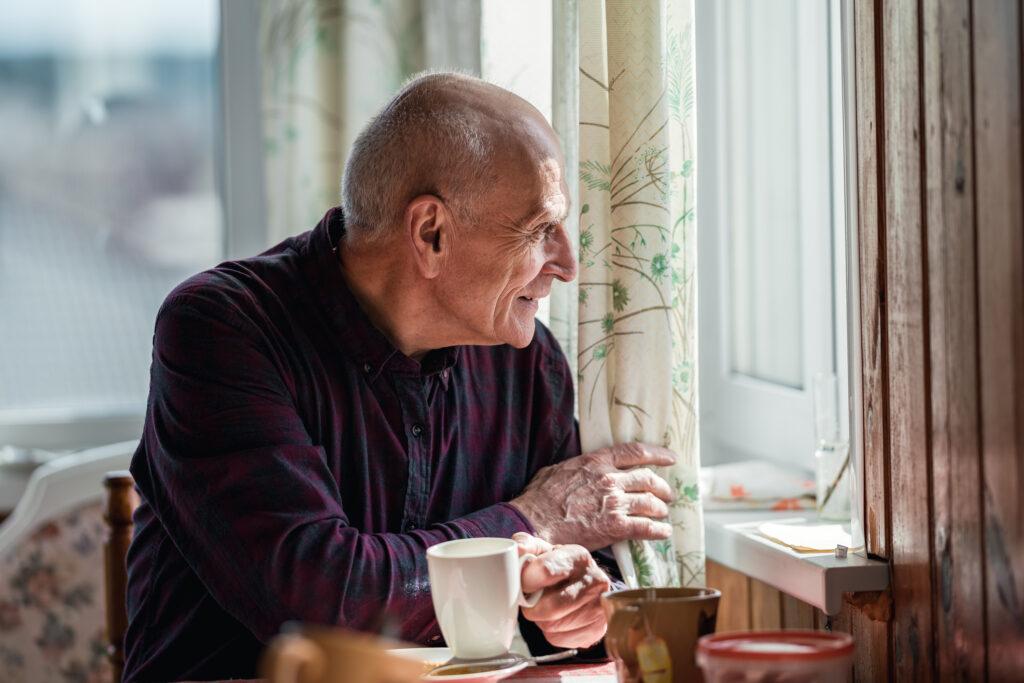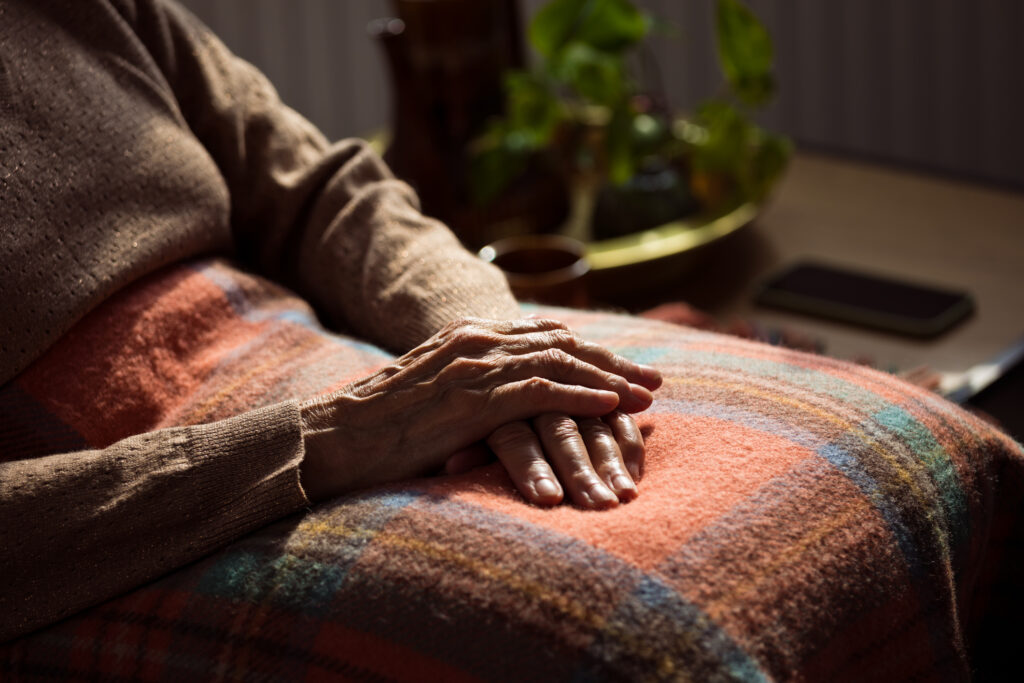
Creating a stronger foundation by using loan finance
Jan Tasker and Grace McCorkle from Collaborative Women share their experience of the loan process.
Can you start by telling me about the property you’ve bought with the ethical loan?
Jan: We house single women fleeing violence. We bought a two-bed flat in Trafford above a shop, refurbished it and turned it into a three-bed apartment with a shared open plan living room and kitchen space. Each resident has her own bedroom with a lockable door, their own lockable cupboard and separate fridge freezer to accommodate any culture and religious needs.
Why did you decide to buy the property rather than rent it?
Jan: We decided to buy a property for a variety of reasons. The property gives the organisation an asset. We have security of tenure and control over repairs.
Also, it’s actually very, very difficult to find a property to lease. Sometimes, we have women who have come from a chaotic background. There may have been drug or alcohol abuse, or they may have been in custody. Landlords don’t want those kinds of residents. There’s a lot of discrimination.
There’s also a big financial benefit to buying. While we might be paying over £1,000 a month if we were renting the property, our loan repayments are considerably less. We are responsible for service charges and maintenance, but we can keep on top of that. We’ve put a five-year plan together.
Another reason for buying is because it gives us some credibility. As we now have an asset, we’re seen as a ‘safer bet’ if we want to access more finance for other projects.
Could you have bought the property without a loan?
Jan: No. It would have been absolutely impossible. We just don’t have that kind of surplus. The only other way was for Grace and I to take out a buy-to-let mortgage. That may have actually worked out cheaper, but it wouldn’t have enhanced the business. We haven’t taken out a loan like this for Collaborative Women before. We can now build a stronger credit history, which gives us a platform to grow.
Grace: It gets us up to the next rung of the ladder, both financially and in terms of growth. And we’ve got to look at how we are seen and scrutinised from the outside, i.e. by funders.
Why did you choose Charity Bank for your loan?
Jan: We met Charity Bank through one of our partner organisations. There are very few lenders who will lend to an organisation as small as ours. Mark, a Charity Bank Lending Manager, gave us a sympathetic ear. He listened and looked at our business plans and our cash flow forecast, and he realised that this had potential and could be done. He’s given us a chance and made it work.
Grace: The funding world doesn’t really seem to understand the difference between a charity and a Community Interest Company (CIC), so that was another barrier we faced. Plus, the amount that we were asking was insignificant to most funders. We weren’t considered worthy enough to be invested in.
Grace & Jan: We’d like to say huge thanks to Mark and Charity Bank for agreeing to a loan. You are truly helping us to make a difference.
How did you find the process of taking out a loan?
Jan: I can honestly say it was really good. We built up a good rapport with Mark and the support team, so we were able to understand exactly what he was looking for, what Charity Bank needed from us and how it would all work. So that was excellent.
And then, when we moved onto the lending team, if we didn’t understand anything, we could just pick the phone up or send an email. The response time was superb.
I don’t think the process could have been better. The only issue was when we got to the solicitors, but I guess that’s solicitors for you!
Grace: The key thing is to be treated like equals. It was made accessible to us and wasn’t an onerous task.
Was it quite daunting to take out a loan for the first time?
Jan: Yes, very much so. We scrutinised the figures, pored over the cash flow and went over all the ‘what ifs’, but Mark helped us with it all.
Grace: We also had to look at how a loan could impact our clients, as we obviously have responsibilities towards them. But Jan and I have built Collaborative Women up from nothing; we have achieved a successful model that we very much believe in. Yes, we did scrutinise our own faith, and make sure we were dotting the Is and crossing the Ts, but we had confidence in ourselves. And Mark helped us to alleviate our fear and see that we could do it.
We’re now elevating ourselves and managing good debt.
Jan: Yes, it’s not bad debt, it’s good debt. It’s not just a property or a loan; it’s actually a legacy. Collaborative Women can start to blossom and grow in a different way.
How else did Charity Bank support you?
Jan: Charity Bank support staff helped with the board resolution notes and were particularly good at providing information and documentation that was understandable. I used to be the chair of quite a big housing association in Manchester and Grace is still on boards for other housing groups, so we’re quite used to paperwork and this sort of documentation. But those are multi-million-pound organisations, so it’s a little bit different for us!
Charity Bank actually offered to talk to our board, but it wasn’t needed in the end.
So, if another social organisation came to you for guidance on taking out a loan, what would you tell them?
Jan: The number one thing is having a committed, trusted board that can be upskilled if needed. Because skills can be learnt. What we have found is that there’s pro bono access to organisations that will help you with that upskilling. For example, we’ve had some support from Greater Manchester Centre for Voluntary Organisations. We also got an overview of our position from the Finance Director of an organisation within the Rothschild Group.
To a small organisation like us that’s looking to take out a loan, I’d say, be open to help and take advantage of any help that’s offered.
Grace: We all need to communicate with each other, support each other and learn from one another. We can help the person that’s further down the ladder, but also look up and learn from those above.
What do you hope your residents will achieve?
Jan: We’ve got a young woman moving out tomorrow who’s being reunited with her children. They are moving forward together and that’s fabulous.
Grace: Our programme is very much about the individual being given the opportunities to empower herself. Everything is geared towards striking a balance between healing from a holistic point of view, but also looking ahead to becoming more financially independent.
Jan: The moving forward programme is compulsory because that helps women to rebuild their lives and break the cycle of violence. It’s not just about accommodation; it’s about changing lives, making new choices, taking different partners and not going back to where they fled from.
One of the first things we ask the women is, “What do you want to do? You fled. You’ve done the really difficult thing. Now, where are you going? What do you want to do?” We’ve had young women wanting to go into construction, midwifery, teaching or volunteering. We help them to realise their aspirations and then nurture that ambition, getting them the right contacts, and building them up and then off they go…
Charity Bank supports both small and large-scale housing projects. If you need finance for yours, please call us on 01732 441919.
About Charity Bank
Charity Bank is the loans and savings bank owned by and committed to supporting the social sector. Since 2002, we have used our savers’ money to make more than 1400 loans totalling over £605m to housing, education, social care, community and other social purpose organisations.
Nothing in this article constitutes an invitation to engage in investment activity nor is it advice or a recommendation and professional advice should be taken before any course of action is pursued.


